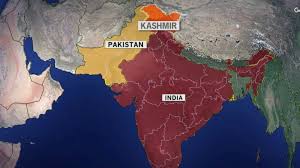
The Importance of Ceasefire between India and Pakistan
The longstanding conflict between India and Pakistan, primarily over the Kashmir region, has been a significant source of tension in South Asia. Recent developments surrounding the ceasefire agreement between these two nuclear-armed neighbors are crucial for regional peace and security. The situation remains fluid, and the prospect of a stable ceasefire could have broad implications for bilateral relations and the safety of millions living in the region.
Recent Developments
On February 25, 2021, both nations reaffirmed the February 2003 ceasefire agreement across the Line of Control (LoC) in Kashmir, leading to a visible reduction in cross-border firing and casualties. This move was welcomed internationally, as it marked an essential step towards dialogue and potential reconciliation. Furthermore, a high-ranking officer of the Indian and Pakistan armies established a direct communication line to monitor compliance with the ceasefire terms, displaying a commitment to maintaining peace.
Regional and International Reactions
The reaffirmed ceasefire has drawn mixed reactions. While many in the region have expressed hope for ongoing dialogue and negotiations, significant skepticism lingers due to a history of violations. International organizations, including the United Nations, have urged both countries to engage in continued discussions to address the root causes of their conflict and seek a more permanent resolution.
Future Prospects and Challenges
Looking ahead, the success of the ceasefire largely depends on both governments’ political will to engage in discussions beyond military terms. Analysts suggest that constructive engagement, facilitated by diplomatic channels, is vital. However, deep-seated mistrust, nationalistic sentiments, and military posturing remain considerable obstacles to enduring peace. Hence, while the ceasefire presents a moment of cautious optimism, analysts urge that establishing a sustainable resolution will require comprehensive efforts focusing on political, economic, and social dimensions.
Conclusion
The India Pakistan ceasefire agreement is a significant milestone that may tilt the region towards a more peaceful trajectory. However, achieving lasting peace and stability is a complex challenge that necessitates ongoing engagement and a shift in attitudes on both sides. For the citizens of both nations and the broader international community, the ceasefire represents an opportunity to build towards a future characterized by dialogue rather than conflict.






